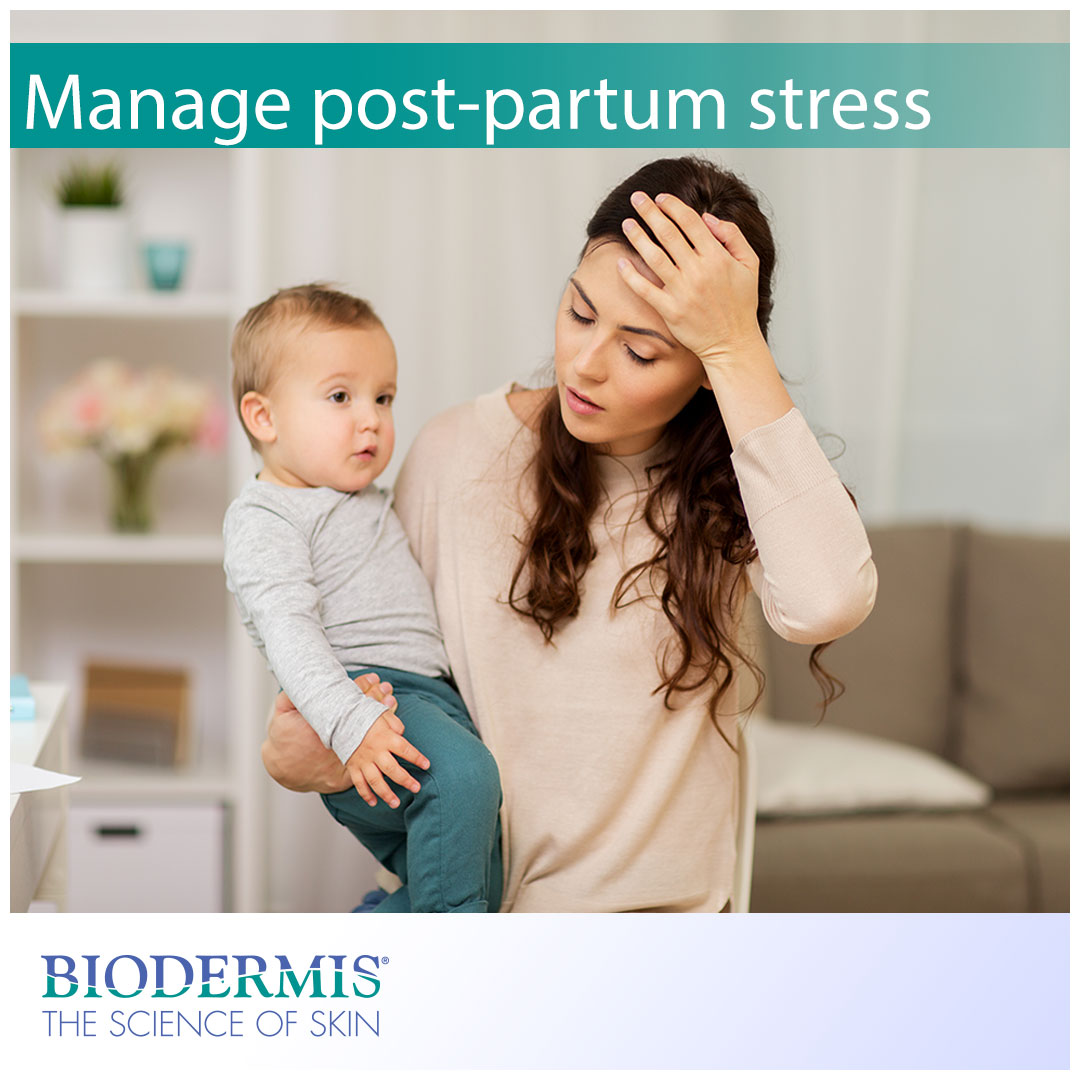Having a baby can be a stressful time for a lot of new mothers. After giving birth, most women will experience changes in mood on top of the added stressors of caring for a newborn baby. About half of all women will have the “baby blues” after going through labor. This phenomenon is marked by feelings of sadness, bouts of crying and anxiety that usually subside after a week or two of giving birth. However, some women experience more significant changes that can last much longer and interfere with their daily lives. These symptoms can drastically affect a woman’s mental health and make it more difficult to care for her baby. Luckily, post-partum stress can be effectively managed by seeking treatment and engaging in self-care practices.
While the baby blues is common and nothing to worry about, about 10-15% of women will develop post-partum depression. This type of depression is long-lasting and can cause extreme emotional turbulence, sadness, anxiety, fatigue, guilt, and frequent bouts of crying. Other symptoms can include difficulty sleeping, loss of appetite, irritability, and difficulty bonding with the baby. If left untreated, post-partum depression can last months or longer, developing into major depressive disorder (MDD). Luckily, this disorder can be easily treated with medication and talk therapy. Talk to your doctor about what options are available to you.
Postpartum self-care
Post-partum self-care
Self-care is the most important thing a new mother should work on after having a baby. A mother will be unable to effectively care for her child if she does not first take care of herself. Self-care can mean a lot of different things to different people. But for everyone, it means doing activities that are good for one’s mental and physical health. While we cannot create an exhaustive list here of what you can do, we can recommend a few activities that will surely make you better fit for motherhood.
Get exercise – exercise is a great way to manage stress and shed a few post-partum calories along the way. Not only is exercise good for your physical health, but it can improve your mental health as well. If you find it difficult to spend time away from your baby, consider bringing your baby with you in a stroller or child carrier backpack. Even taking a 20-30 minute walk every day in nature will get your heart pumping and distract you from the stresses of being a new mom.
Take a break from technology - technology benefits our lives in so many ways but using too much of it can put a strain on us mentally. For instance, if you are constantly checking your phone for messages and emails, you will be less focused on the task at hand and your anxiety will be heightened. Additionally, social media can dampen your mood as you scroll through pictures of your friends out vacationing while you are at home with the baby. Looking at a bright screen late at night can also interfere with our sleep, making us feel less refreshed for the tasks the next day.
Try breathing techniques – With the hectic and fast-paced lifestyles that many of us live, we sometimes forget to take deep breathes in and out. Shallow breathing is a symptom of anxiety and can lead to other anxious symptoms. It’s always a good idea to set aside time every day to slow down your breathing and ground yourself in the present moment. Meditation techniques are a great way to achieve this. One way to practice breathing is to sit upright in a chair or on the floor. Slowly exhale all of the air out of your lungs through your mouth, and then inhale slowly through your nose until your lungs are full. Hold the air in your lungs for 3 to 5 seconds before exhaling. Doing this for a minute or two at a time can really train your body and mind to slow down.
Talk therapy – Part of good self-care is admitting when you need help, and then seeking it. Seeing a therapist is nothing to be ashamed of and having another person in your corner as you traverse the complexities of being a mother can be extremely helpful. It’s much easier now than it was in the past to find a therapist. Many of them will work with your insurance and some clinics will offer you the option of seeing a student or intern therapist for a fraction of the cost.
Medication – Some mothers may need an extra push in addition to the self-care recommendations listed above. Similar to therapy, medication is nothing to be ashamed of. If you are finding it difficult to cope with the stressors of being a mother and your child is suffering because of it, then the benefits of medication far outweigh the risks. Talk to your doctor about the symptoms you are having and find out what options are available to you.
Biodermis is an innovative market leader with 30 years of expertise in the medical silicone industry. Visit Biodermis.com today to explore a complete range of scar management and post-operative care solutions.
PHYSICIANS AND MEDICAL PROFESSIONALS: REFER OR RESELL?
Biodermis offers custom tailored referral programs designed to simplify and reduce the cost of your patients' post-op care. Additionally, we offer professional pricing if you opt to retail our products. Give us a call at 800.322.3729, and we will be happy to provide additional details on these programs.





